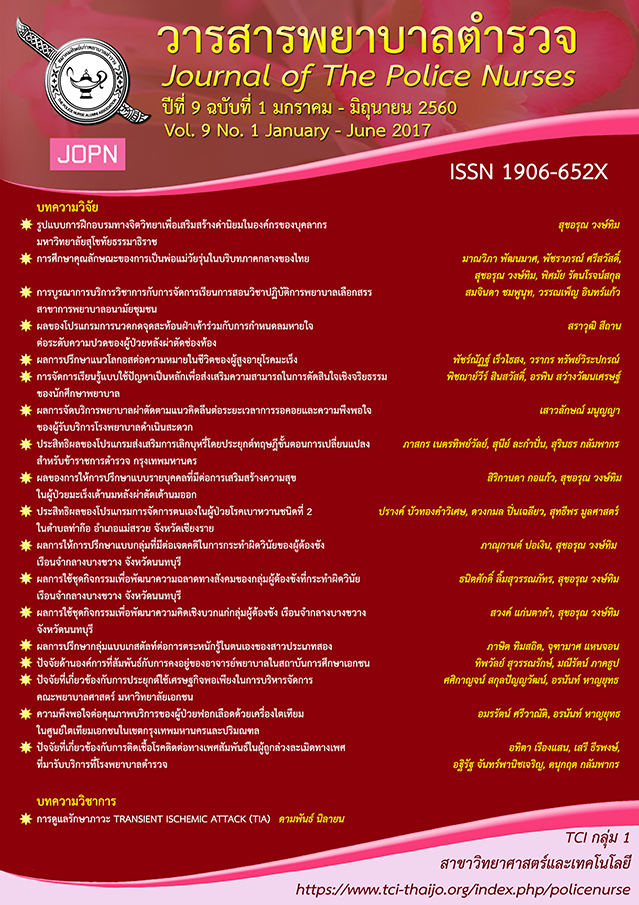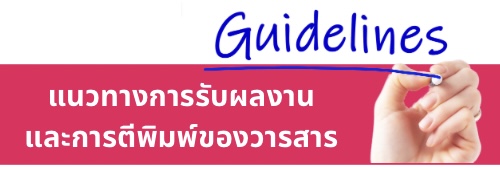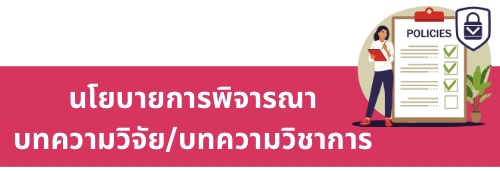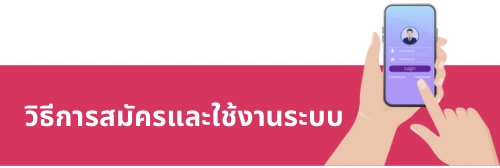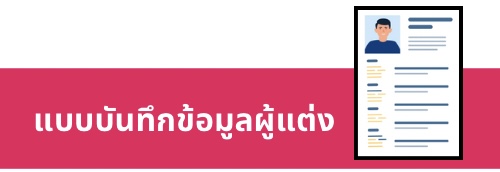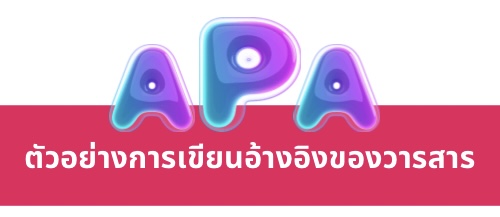ประสิทธิผลของโปรแกรมการจัดการตนเองในผู้ป่วยโรคเบาหวานชนิดที่ 2 ในตำบลท่าก๊อ อำเภอแม่สรวย จังหวัดเชียงราย
คำสำคัญ:
โปรแกรมการจัดการตนเอง, พฤติกรรมการจัดการตนเอง, ระดับน้ำตาลในเลือด, โรคเบาหวานชนิดที่ 2, self-management program, self-management behavior, plasma glucose level, type 2 diabetic patientsบทคัดย่อ
การวิจัยกึ่งทดลองนี้ มีวัตถุประสงค์เพื่อศึกษาผลของโปรแกรมการจัดการตนเองต่อพฤติกรรมการจัดการตนเองและระดับน้ำตาลในเลือดของผู้ป่วยโรคเบาหวานชนิดที่ 2 โดยนำแนวคิดการจัดการตนเองของแคนเฟอร์มาเป็นกรอบแนวคิดในการทำวิจัย ตัวอย่างเป็นผู้ป่วยโรคเบาหวานชนิดที่ 2 จำนวน 40 คน แบ่งเป็นกลุ่มทดลองและกลุ่มควบคุมกลุ่มละ 20 คน กลุ่มควบคุมได้รับการดูแลตามปกติ ส่วนกลุ่มทดลองได้รับโปรแกรมการจัดการตนเองเป็นระยะเวลา 9 สัปดาห์ เครื่องมือที่ใช้ในการวิจัยคือ โปรแกรมการจัดการตนเอง แบบสอบถามพฤติกรรมการจัดการตนเอง และแบบบันทึกระดับน้ำตาลในเลือด วิเคราะห์ข้อมูลโดยหาค่าความถี่ ร้อยละ ค่าเฉลี่ย ส่วนเบี่ยงเบนมาตรฐาน และการทดสอบที
ผลการวิจัยพบว่า 1) ค่าเฉลี่ยของคะแนนพฤติกรรมการจัดการตนเองระหว่างกลุ่มทดลองและกลุ่มควบคุมภายหลังการทดลองมีความแตกต่างกันอย่างมีนัยสำคัญทางสถิติที่ระดับ .05 ค่าเฉลี่ยของคะแนนพฤติกรรมการจัดการตนเองของกลุ่มทดลองหลังได้รับโปรแกรมการจัดการตนเองสูงกว่าก่อนได้รับโปรแกรมอย่างมีนัยสำคัญทางสถิติที่ระดับ .05 และ 2) ค่าเฉลี่ยของระดับน้ำตาลในเลือดระหว่างกลุ่มทดลองและกลุ่มควบคุมหลังการทดลองไม่มีความแตกต่างกันทางสถิติที่ระดับ .05 ค่าเฉลี่ยระดับน้ำตาลในเลือดของกลุ่มทดลองหลังได้รับโปรแกรมการจัดการตนเองต่ำกว่าก่อนได้รับโปรแกรมการจัดการตนเองอย่างมีนัยสำคัญทางสถิติที่ระดับ .05
THE EFFECTIVENESS OF SELF-MANAGEMENT PROGRAM ON TYPE 2 DIABETIC PATIENTS IN THAKOR, MAESUAI DISTRICT, CHIANGRAI PROVINCE
Abstract
The purpose of this quasi-experimental study were to study the effect of a self-management program on self-management behaviors and the plasma glucose level in type 2 diabetic patients. The conceptual model used in this study was Kanfer’s self-management model. The sample included 40 patients with type 2 diabetes. Twenty subjects of the experimental and 20 subjects of the control groups. The control group received conventional nursing care; while the experimental group received the self-management program for 9 weeks. The research instruments were the self-management program, questionnaires of self-management behaviors, and the blood sugar record form. Data were analyzed by frequency, percentage, mean, standard deviation, and t-test.
The results revealed as follows. 1) The mean score of the self-management behavior after receiving the self-management program in the experimental group was significantly higher than the control group (p < .05); after receiving the self-management program, the mean score on the self-management behaviors in the experimental group was significantly higher than before receiving the self-management program (p < .05). 2) After experimenting, there was no significantly difference of plasma glucose level in type 2 diabetic patients between the experimental and the control groups (p > .05); however, after receiving the self-management program, the mean score on the plasma glucose level in the experimental group was significantly lower than before receiving the self-management program (p < .05).
Downloads
ดาวน์โหลด
เผยแพร่แล้ว
รูปแบบการอ้างอิง
ฉบับ
ประเภทบทความ
สัญญาอนุญาต
ผลงานที่ได้ตีพิมพ์แล้วจะเป็นลิขสิทธิ์ของวารสารพยาบาลตำรวจ

